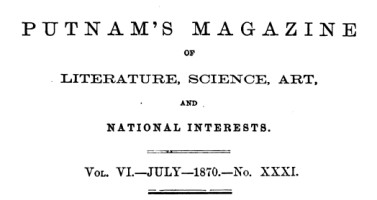 |
surfresearch.com.au
unaccredited : love in
fiji,1870
|
Extract from
Unaccredited: Love In Fiji - My Early Life Amoung the Cannibals.
Putnam's Magazine of Literature, Science, Art, and National Interests
G. P. Putnam & Sons, New York
Volume 6 Number 31, July 1870.
Hathi Trust
https://hdl.handle.net/2027/iau.31858036071615
